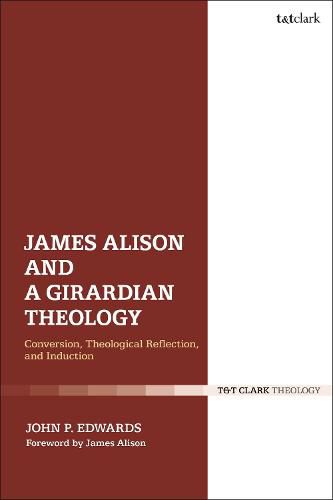Readings Newsletter
Become a Readings Member to make your shopping experience even easier.
Sign in or sign up for free!
You’re not far away from qualifying for FREE standard shipping within Australia
You’ve qualified for FREE standard shipping within Australia
The cart is loading…






Opening with a Foreword by James Alison, this volume is the first in-depth treatment of Alison’s theological method. John P. Edwards shows that Alison’s theological project outstrips Rene Girard’s application of mimetic theory to theology. He concludes that an explicitly Christian theological perspective is necessary for providing a fully coherent account of Girard’s notions of conversion and mimetic desire .
This volume grounds Alison’s theological method in his understanding of the ongoing interaction between conversion and theological reflection, which is informed by his use of mimetic theory. While Alison describes this method as theology in the order of the discovery , the author refers to it as an inductive theology . The volume closes by demonstrating that such a theology bears fruit in a renewed understanding of the value of Christian doctrines and, particularly, the doctrine of revelation.
$9.00 standard shipping within Australia
FREE standard shipping within Australia for orders over $100.00
Express & International shipping calculated at checkout
Opening with a Foreword by James Alison, this volume is the first in-depth treatment of Alison’s theological method. John P. Edwards shows that Alison’s theological project outstrips Rene Girard’s application of mimetic theory to theology. He concludes that an explicitly Christian theological perspective is necessary for providing a fully coherent account of Girard’s notions of conversion and mimetic desire .
This volume grounds Alison’s theological method in his understanding of the ongoing interaction between conversion and theological reflection, which is informed by his use of mimetic theory. While Alison describes this method as theology in the order of the discovery , the author refers to it as an inductive theology . The volume closes by demonstrating that such a theology bears fruit in a renewed understanding of the value of Christian doctrines and, particularly, the doctrine of revelation.